Distressed Victorian kids are using social media to share their mental health struggles
Young Victorians are turning to social media to share their mental health struggles — but experts warn more help is needed.
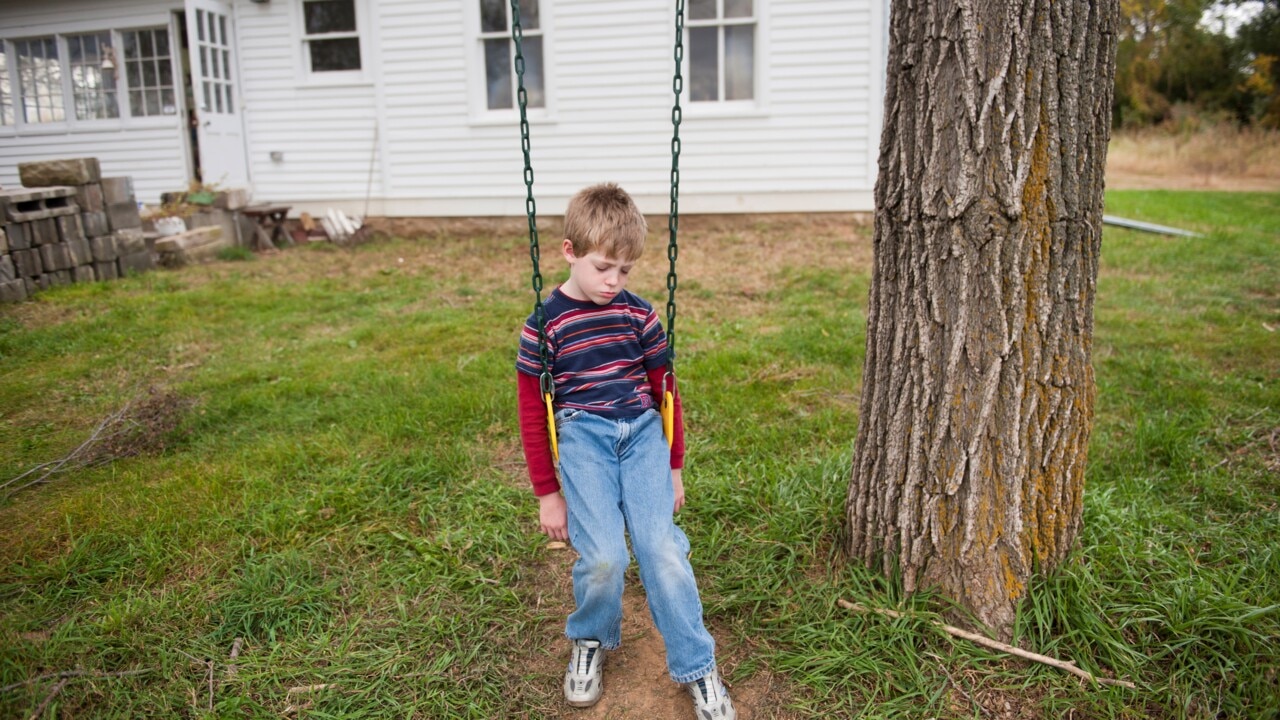
Victoria
Don't miss out on the headlines from Victoria. Followed categories will be added to My News.
Young people are using social media to share details of their mental health battles, with professionals warning the outlet is healthy, as long as it’s not their only support mechanism.
Monash University’s head of psychiatry Professor Suresh Sundram said youth online communities had become stronger during Victoria’s Covid lockdowns, as kids were forced to physically separate from friends and stop sport and other group-based hobbies.
“That was part of the problem with lockdown; all of these physical forms of socialising had to stop,” he said.
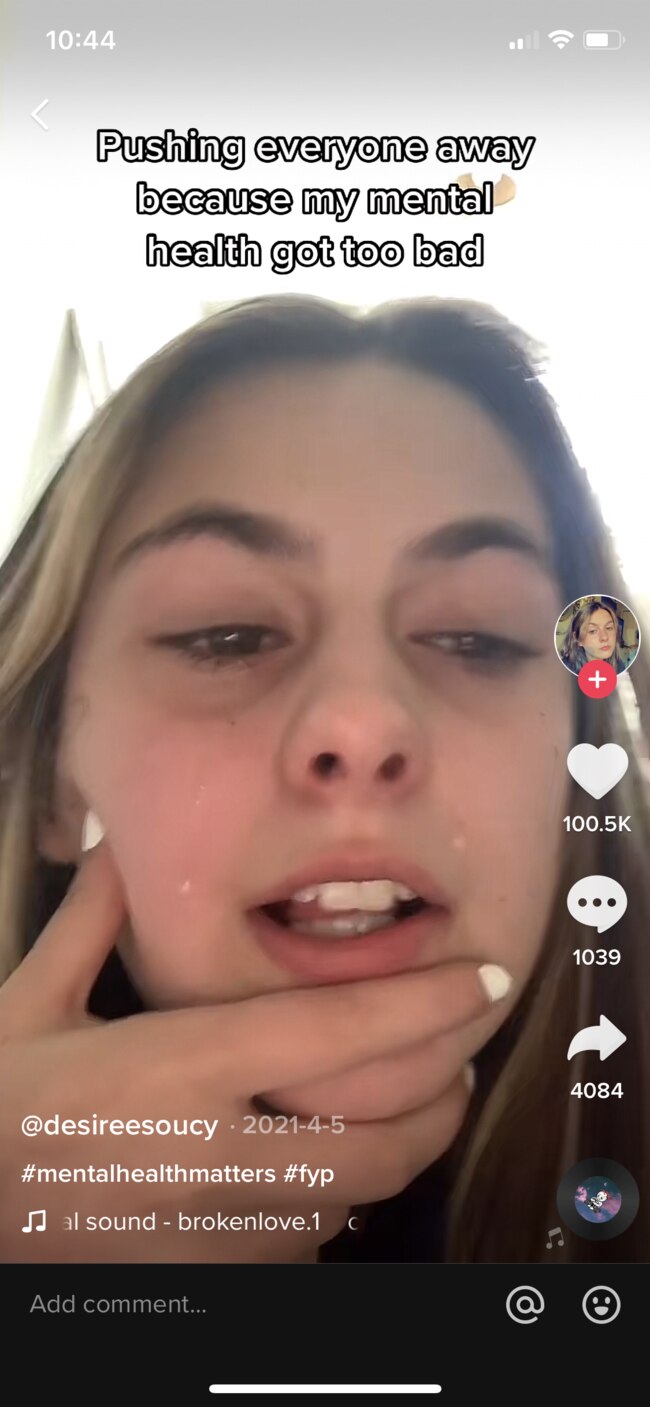
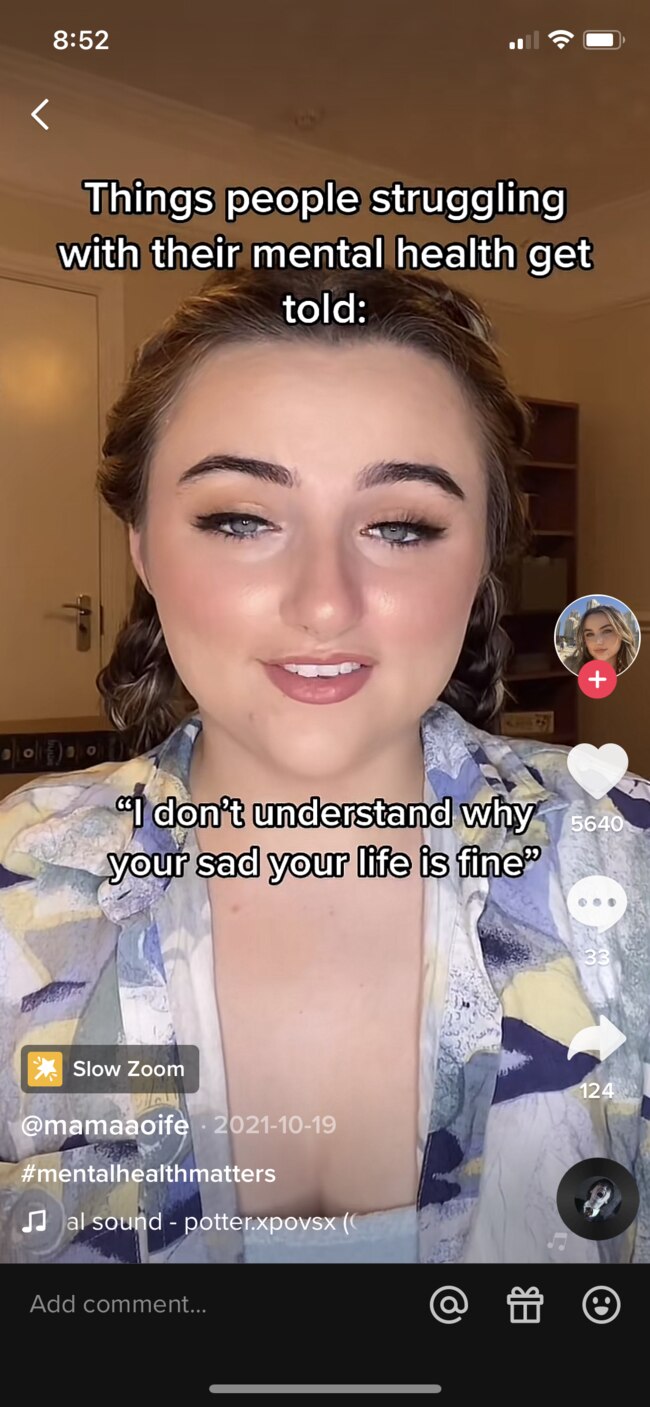
“It then makes sense that these online communities grew and became stronger.”
Sharing mental health conditions on social platforms – and gaining support – could help young feel a sense of belonging and validate them, Professor Sundram said.
It also worked to reduce taboos around the subject of mental illness.
“Peer support is a really important element of mental support for young people, and social media is a way of engaging in this support and expressing how you’re feeling,” he said.
“Clearly, if people are in serious mental distress then it’s not a sufficient way of addressing the issue – it’s a way of coping, not necessarily solving the issue.”
Professor Sundram warned if and when mental health struggles took a turn for the worse, the issue should be managed medically, rather than socially.
“People can manage and maintain mental health through social engagement and communities, but if distress gets really severe then you need intervention from a psychologist, psychiatrist, or even emergency room staff,” he said.
“(But) at the end of the day, if kids are feeling supported by online communities then that isn’t a bad thing.”
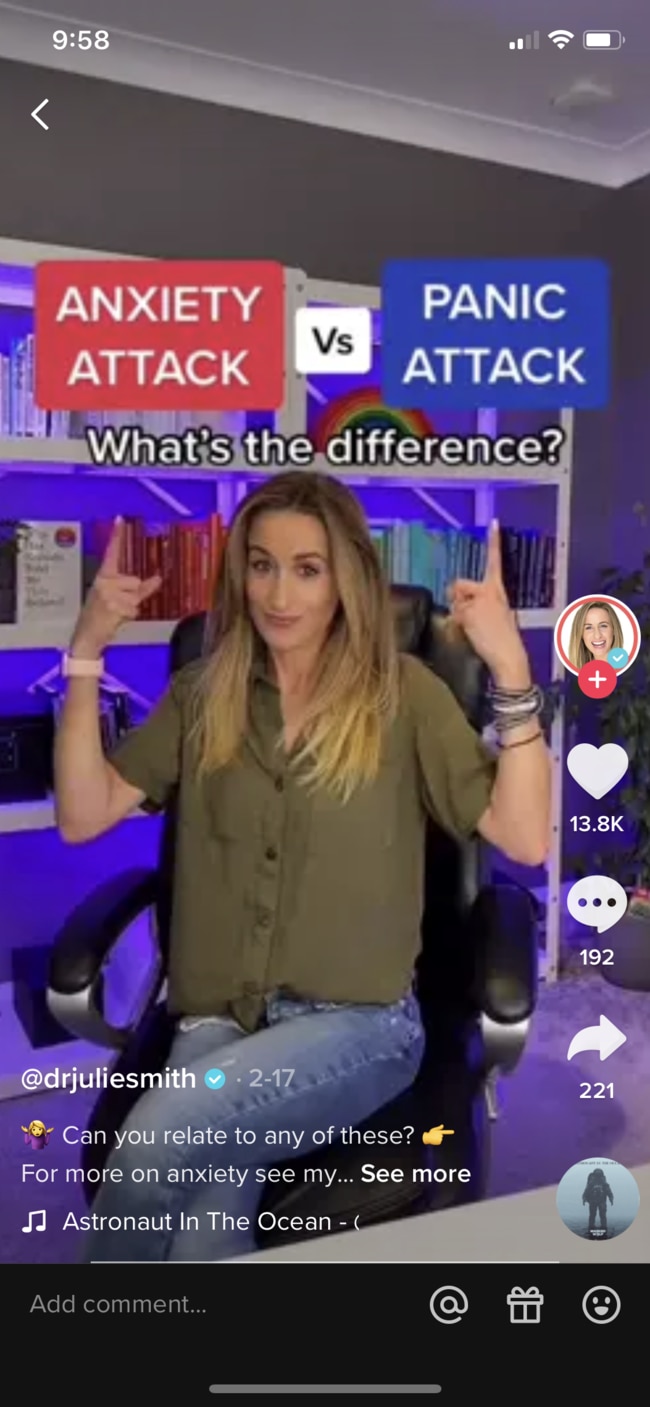
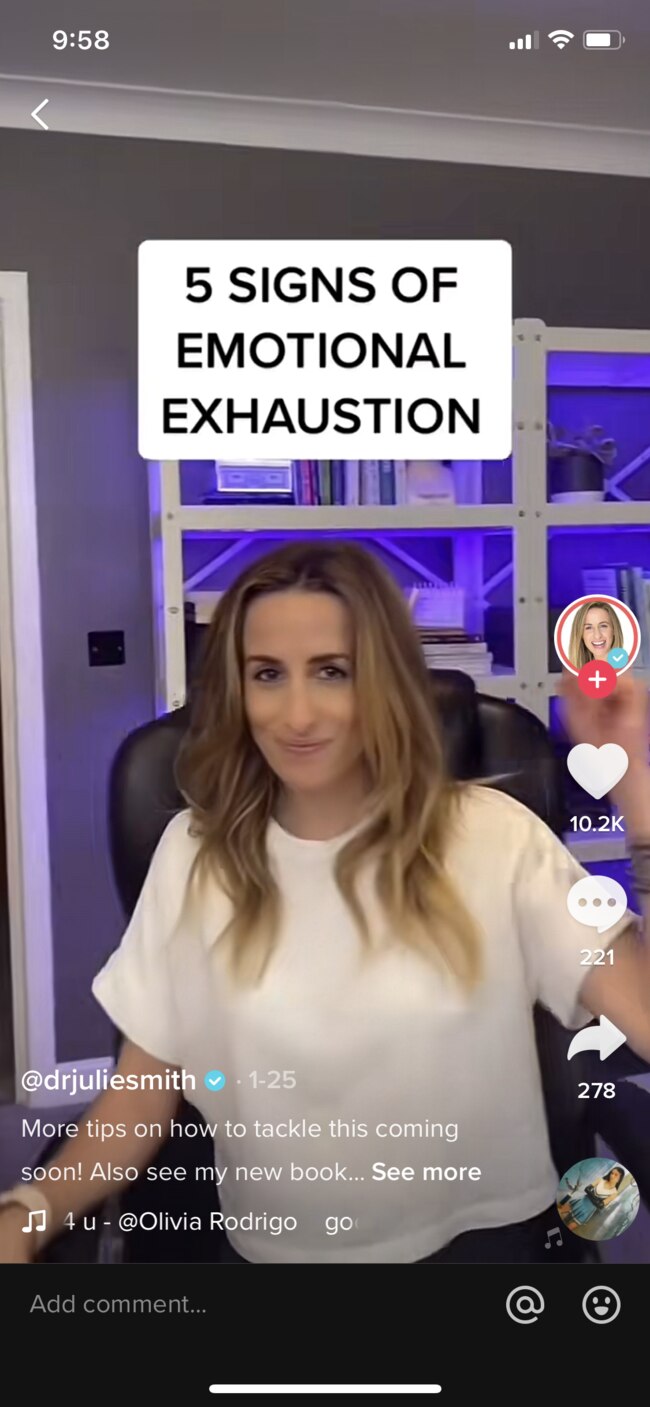
Videos on TikTok with the hashtag #mentalhealth have ballooned to more than 30 billion views, with #depression and #anxiety both amassing billions of their own views.
The trend in hashtags shows the app’s transition from a platform for quirky dances to a space to open up about serious issues, as well as receive advice from professionals and learn from therapists with their own TikTok accounts.
The Australian Bureau of Statistics shows while teen suicide rates have been in decline since 2019, self-harm and distress rates have increased, leading to fears the suicide rate will correspondingly climb in months and years to come.
Many professional psychologists have their own accounts on TikTok, including Dr Julie Smith, who has more than three million followers.
Dr Smith specialises in mental health and psychology, sharing advice on topics ranging from warning signs of deteriorating health through to the difference between panic and anxiety attacks.
Her online content aims to educate viewers on both signs and symptoms of mental conditions, but also familiarises her audience with terminology and names of more obscure conditions like trichotillomania (a hair-plucking disorder).
More Coverage
Originally published as Distressed Victorian kids are using social media to share their mental health struggles




